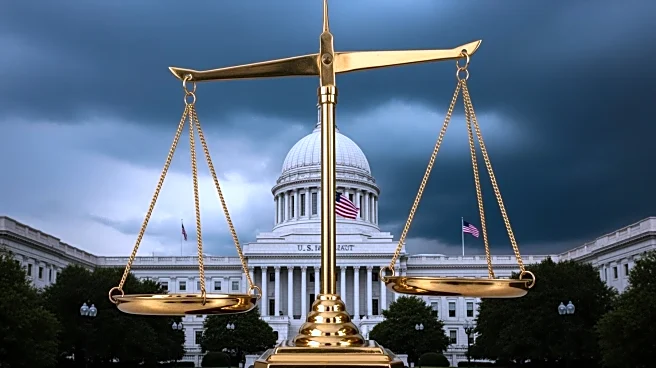What's Happening?
The U.S. Treasury, led by Secretary Scott Bessent, is involved in a financial rescue plan for Argentina, aimed at stabilizing the Argentine peso. This initiative includes purchasing large amounts of Argentine pesos
to support the currency's value. The plan comes amid Argentina's economic struggles under President Javier Milei, who has implemented drastic fiscal measures to curb inflation and reduce public spending. Despite initial successes, Milei's policies have faced setbacks, particularly after a significant electoral loss in Buenos Aires province, raising concerns about his political future and the country's economic stability.
Why It's Important?
The U.S. intervention in Argentina's financial crisis highlights the geopolitical and economic interests at play. A stable Argentina is crucial for regional stability and for U.S. economic interests, particularly given Argentina's role as a competitor in agricultural exports. The U.S. support, however, is politically sensitive, as it contrasts with the 'America First' philosophy and could face domestic criticism, especially from American farmers who view Argentina as a rival. The outcome of this intervention could influence U.S.-Argentina relations and set a precedent for future international financial rescues.
What's Next?
The upcoming national congressional midterm elections in Argentina are critical. If President Milei's party performs poorly, it could jeopardize the U.S. support, as President Trump has indicated a lack of interest in aiding Argentina if the Peronists gain power. The election results will determine the political landscape and the feasibility of continued U.S. financial assistance. The situation remains fluid, with potential implications for Argentina's economic policies and its ability to meet international debt obligations.
Beyond the Headlines
The U.S. involvement in Argentina's financial crisis raises questions about the ethical and strategic considerations of international bailouts. The lack of transparency in the U.S. intervention and the political dynamics between President Milei and the Trump administration highlight the complexities of international economic diplomacy. The situation also underscores the challenges of balancing domestic political interests with international economic strategies.









